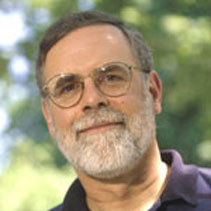
James M. Gossett
Biography
Professor Gossett joined the Cornell faculty in 1976. He was a faculty research fellow (1980) and a visiting professor (1984-85) with the U.S. Air Force Research Laboratory, a NATO fellow (1987-92), and a Pacific Northwest National Laboratory (PNNL) Affiliate Staff Scientist (1996-1999). At Cornell, he served as Director of the School of Civil & Environmental Engineering from 2003-2008. Feature articles about Gossett's work have appeared in The Washington Post, The New York Times, NewsDay, Le Figaro, Scientific American Explorations, Chemical and Engineering News, and Civil Engineering. Gossett has also appeared in numerous broadcast-media reports, including interviews with BBCWorldService, RTL (a German TV network), and CNN, as well as a segment on CNN's weekly magazine show, Science & Technology Week.
Research Interests
Gossett's research interests are in the general area of applied microbiology -- factors influencing biodegradability, microbial kinetics, and understanding the complex interactions occurring in microbial communities. Since 1984, he has principally worked on topics related to bioremediation of chlorinated-solvent-contaminated groundwaters. Additionally, Gossett conducts research on biofuels from lignocellulosic biomasses: pre-treatment and enzymatic hydrolysis.
Ongoing research is in the general area of anaerobic bioremediation of chlorinated solvents. Specifically, Gossett and his students are investigating the use of bark-mulch barrier walls to intercept dilute plumes of chlorinated solvents contaminating the subsurface. The impetus for this research is the Cornell-contaminated site at the northern edge of Tompkins County airport. Additionally, Gossett and a student are working on improving a comprehensive predictive model for anaerobic reductive dechlorination.
Teaching Interests
Professor Gossett teaches graduate-level courses in biological processes (CEE 6570) and physical/chemical processes (CEE 6560). He also coordinates the graduate seminar in environmental engineering processes (CEE 6051).
Service Interests
Professor Gossett's primary service focus is in advisory roles to governmental and nongovernmental research programs (PNNL, Battelle, NATO, DoE, DoD, SERDP, and ESTCP) regarding future research needs and technology transfer.
Selected Publications
- Nishino, S F., K A. Shin, James Michael Gossett, J C Spain. 2013. "Cytochrome P450 Initiates Aerobic Degradation of cis-Dichloroethene by Polaromonas sp. Strain JS666." Applied and Environmental Microbiology 79 (7): 2263-2272.
- Sills, D L., James Michael Gossett. 2012. "Using FTIR Spectroscopy to Model Alkaline Pretreatment and Enzymatic Saccharification of Six Lignocellulosic Biomasses." Biotechnology and Bioengineering 109 (4): 894-903.
- Gossett, J M. 2010. "Sustained Aerobic Oxidation of Vinyl Chloride at Low Oxygen Concentrations." Environmental Science & Technology 44 (4): 1405-1411.
- Maymó-Gatell, X., Y-T Chien, James Michael Gossett, S. H. Zinder. 1997. "Isolation of a Bacterium That Reductively Dechlorinates Tetrachloroethene to Ethene." Science 276: 1568-1571.
- Freedman, D L., J M Gossett. 1989. "Biological reductive dechlorination of tetrachloroethylene and trichloroethylene to ethylene under methanogenic conditions." Applied and Environmental Microbiology 55 (9): 2144-2151.
Selected Awards and Honors
- Co-PI, SERDP 2010 Environmental Restoration Project of the Year (Strategic Environmental Research and Development Program)2010
- Distinguished Lecturer (Georgia Institute of Technology's Association of Environmental Engineers and Scientists (AEES)) 2009
- 2008 AEESP Outstanding Publication Award (Association of Environmental Engineering and Science Professors) 2008
- Teaching Award (J.P. and Mary Barger '50 College of Engineering Excellence) 1999
- Affiliate Staff Scientist (Pacific Northwest National Laboratory (PNNL)) 1996
Education
- MS (Civil Engineering), Stanford University, 1973
- BS (Chemical Engineering), Stanford University, 1973
- Ph D (Civil Engineering), Stanford University, 1977

